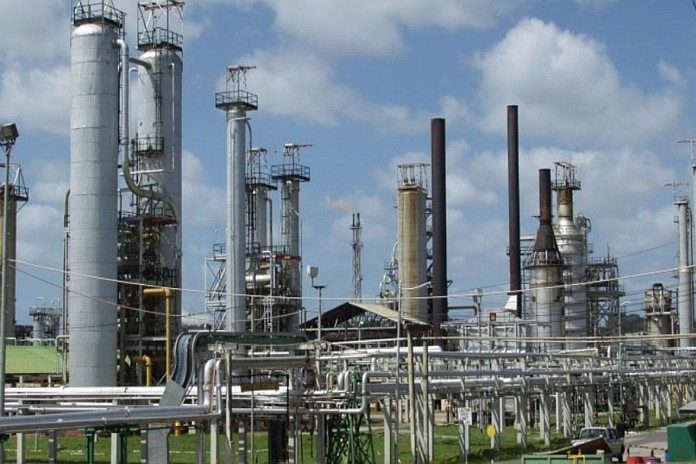Dear Sir:
Given the celebratory mood of the Oilfields Workers’ Trade Union (OWTU), desk pounding in the parliament when the announcement was made and the prime ministers description of the arrangement as a “beacon of hope”, it can be reasonably assumed that the Pointe-a-Pierre (PAP) refinery and Paria Fuel Trading will soon be under the control of the OWTU’s Patriotic Energies. With their control of Paria Fuel Trading, the OWTU and its financial backers will have complete control over the nation’s fuel supply.
As is now obvious, there was no need to shut down the refinery a year ago. The minister of finance said it made a profound contribution to GDP. It also provided business for hundreds of contractors and service providers. Yes, there was a need for improving operational efficiency, but this could have been done as opposed to the shutdown.
The impact of the closure on south Trinidad has been severe. In 1993, former Peoples National Movement (PNM) leader Patrick Manning requested that Petrotrin evaluate options for the refining industry. One of the options was to shut down both the PAP and Point Fortin refineries and completely exit refining. This complete exit option was rejected because of the negative socio-economic impact it would have on south Trinidad.
Manning was also very concerned about the security of supply of petroleum products to the local and Caricom markets. The Point Fortin refinery was however shut down in 1994.

The PAP refinery is the most complex business in Trinidad and Tobago and contrary to what was being bandied about last year, the refinery is not 100 years old although refining has been taking place in PAP since 1917. The oldest plants at PAP are the Number 8 Topping unit (1960’s) and the Catalytic Cracker (1950’s).
Major upgrades of the refinery were conducted in the early 1970s, the mid-1990s and there was the Gasoline Optimization Programme (GOP) which ran from 2006 to 2014. In an address to the nation in September 2018, the prime minister noted that the GOP had cost Petrotrin $US 1.8 billion and had suffered from severe cost escalation and schedule slippage.
The GOP was completed around the period 2013-2014. Arising out of the GOP there are new plants at PAP. These include a new Acid Alkylation Unit and associated Acid Regeneration Unit, a new Isomerization unit, a new CCR platformer complex and the installation of offsite facilities and upgraded utility systems for all new and upgraded plants.
In addition, as part of the GOP, the Cat Cracker was upgraded and was certified, in 2014, by Lloyds as fit for use. In 2015 the refinery was making an operational profit. In April 2016, the then president of Petrotrin told a Joint Select Committee that the refinery was a “bright spot”. What went wrong after April 2016?
The complexity of every refinery is expressed using the Nelson Complexity Index. The Nelson Complexity Index for our refinery is 8.8.
Te higher the Nelson Complexity Index, the more likely it is a refinery will thrive. It is for that reason the Ultra-Low Sulphur Diesel (ULSD) plant is important to the refinery going forward. The ULSD if completed would increase the Nelson Complexity Index to 9.8. It is unsure whether Patriotic Energies has a plan to complete the ULSD but if they do, it will cost them $US 300 million.
Overall, the estimated cost to restart the PAP refinery is $US 1150 million which is made up of $US 500 million for the restart and $US 650 million for crude oil purchases for three months. The cost to complete the ULSD plant is separate and apart from this $US 1150 million.
In summary, restarting the refinery mainly requires:
- Inspection of mothballing records;
- Inspection by a third party of all process plants and utility plants, vessels, fixed and rotating equipment, instrumentation, tanks, boilers, pipelines, jetties, IT, offsite (inclusive of relief systems and flares);
- Inspection of the unfinished ULSD plant and associated equipment;
- Assessment of the condition of the water reservoirs that service the refinery;
- Preparation and approval of pre-start-up operational and safety plans;
- Engagement of the relevant human resource;
- Preparation of detailed start-up plans including a sequence for a start-up;
- A restart of over twenty integrated process plants;
- Refinery process planning using PIMS linear programming model;
- All regulatory approvals including a Refining Licence from the ministry of energy;
- Property, plant and equipment insurance as well as public liability, personnel, etc. insurances;
- Off-take agreements for refined products;
- Purchasing of crude oil;
- A natural gas purchase agreement for 50-60 million cubic feet/day from NGC;
- Recertification for the manufacture, storage, and delivery of jet fuel;
- Renewal of all lapsed certification.
From the list above, getting the refinery restarted will take at least one year. The refinery has been down for one year and the longer it stays down, the more expensive is the restart.
As a reference point, it was recently reported that it will cost $US 1.4 billion to restart the refinery in St Croix. While this refinery has been down longer than ours (since 2012), it still provides a good gauge for what it will ultimately cost to restart our refinery.
Where is the financing coming from? I suppose we will very soon have all the answers.
Kevin Ramnarine
Former Minister of Energy and Energy Affairs






